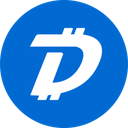-
 Bitcoin
Bitcoin $83,055.9927
-0.47% -
 Ethereum
Ethereum $1,811.3411
-0.84% -
 Tether USDt
Tether USDt $0.9996
-0.02% -
 XRP
XRP $2.0568
-0.29% -
 BNB
BNB $592.3786
-1.07% -
 USDC
USDC $1.0000
0.02% -
 Solana
Solana $115.8401
-3.10% -
 Dogecoin
Dogecoin $0.1622
-2.36% -
 Cardano
Cardano $0.6499
-0.49% -
 TRON
TRON $0.2387
1.14% -
 Toncoin
Toncoin $3.5313
-7.91% -
 UNUS SED LEO
UNUS SED LEO $9.4387
0.79% -
 Chainlink
Chainlink $12.8160
-2.83% -
 Stellar
Stellar $0.2597
-0.92% -
 Avalanche
Avalanche $18.1550
-1.86% -
 Sui
Sui $2.2297
-6.00% -
 Shiba Inu
Shiba Inu $0.0...01216
-1.10% -
 Hedera
Hedera $0.1628
-0.73% -
 Litecoin
Litecoin $83.3180
0.23% -
 Polkadot
Polkadot $4.0186
-0.86% -
 MANTRA
MANTRA $6.3865
0.69% -
 Bitcoin Cash
Bitcoin Cash $302.0680
0.90% -
 Bitget Token
Bitget Token $4.5033
-1.06% -
 Dai
Dai $1.0000
0.01% -
 Ethena USDe
Ethena USDe $0.9995
-0.05% -
 Hyperliquid
Hyperliquid $11.9355
-4.35% -
 Monero
Monero $213.8810
-0.87% -
 Pi
Pi $0.5489
-17.54% -
 Uniswap
Uniswap $5.8524
-1.97% -
 Aptos
Aptos $5.0205
-3.57%
Why can NFT be used to sell virtual tickets?
NFTs revolutionize virtual tickets with unique identifiers on blockchain, smart contracts for automation, and added perks, enhancing fan experiences and enabling secure resales.
Apr 03, 2025 at 01:35 pm
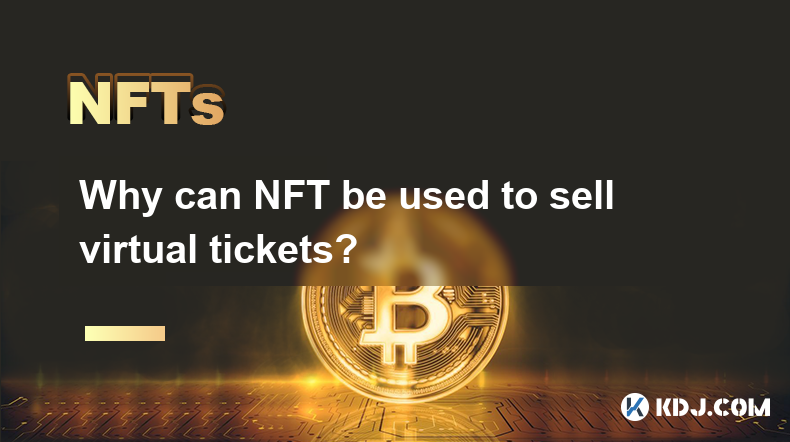
NFTs, or Non-Fungible Tokens, have revolutionized the way we think about digital ownership and value, particularly in the realm of virtual tickets. The primary reason NFTs can be used to sell virtual tickets is their unique nature. Unlike cryptocurrencies such as Bitcoin or Ethereum, which are fungible and can be exchanged on a one-to-one basis, NFTs are distinct and cannot be replicated or substituted. This uniqueness makes them ideal for representing ownership of specific items, like virtual tickets to events, concerts, or sports games.
Uniqueness and Authenticity
Each NFT is minted on a blockchain, typically Ethereum, which ensures that it has a unique identifier. This identifier cannot be duplicated, ensuring that each virtual ticket sold as an NFT is one-of-a-kind. This feature is crucial for event organizers who need to prevent ticket fraud and scalping. When a virtual ticket is sold as an NFT, the buyer receives a digital token that proves ownership of that specific ticket. This authenticity can be verified on the blockchain, providing a transparent and tamper-proof system.
Smart Contracts and Automated Transactions
Another significant advantage of using NFTs for virtual tickets is the use of smart contracts. These are self-executing contracts with the terms of the agreement directly written into code. When a virtual ticket is sold as an NFT, the smart contract can automatically handle the transfer of ownership, payment, and even royalties if the ticket is resold. This automation reduces the need for intermediaries, making the process more efficient and cost-effective. For instance, if an event organizer wants to ensure that a certain percentage of the resale value goes back to them, this can be programmed into the NFT's smart contract.
Scarcity and Value
NFTs can also create a sense of scarcity and exclusivity, which can drive up the value of virtual tickets. By limiting the number of NFTs minted for an event, organizers can create a high demand for these tickets. This scarcity can lead to higher prices, benefiting both the organizers and the initial buyers who can resell their tickets at a profit. For example, a limited edition NFT ticket to a popular music festival can become a valuable collectible, adding another layer of value to the ticket beyond just the access to the event.
Enhanced Fan Experience
Using NFTs for virtual tickets can also enhance the fan experience. NFTs can be bundled with additional perks such as exclusive content, meet-and-greets, or digital merchandise. This added value can make the virtual ticket more appealing to potential buyers. For instance, an NFT ticket to a virtual concert might include access to behind-the-scenes footage or a virtual meet-and-greet with the artist. These additional benefits can make the NFT ticket more than just a pass to an event; it becomes a memorable and unique experience.
Secondary Markets and Resale
NFTs enable the creation of secondary markets for virtual tickets. Since each NFT is unique and its ownership is verifiable on the blockchain, these tickets can be easily resold. This feature is particularly beneficial for fans who can no longer attend an event and want to recoup their investment. Platforms like OpenSea and Rarible have become popular for trading NFTs, including virtual tickets. The ability to resell NFTs provides flexibility and liquidity, making them an attractive option for both buyers and sellers.
Security and Transparency
The blockchain technology behind NFTs offers a high level of security and transparency. Every transaction involving an NFT is recorded on the blockchain, making it immutable and transparent. This means that the entire history of a virtual ticket, from its initial sale to any subsequent resales, is publicly verifiable. This transparency helps prevent fraud and ensures that all parties involved in the transaction can trust the process. For event organizers, this means less risk of ticket duplication or unauthorized resales, and for buyers, it means confidence in the authenticity and legitimacy of their purchase.
Integration with Digital Wallets
NFTs can be stored and managed in digital wallets, which adds another layer of convenience for users. These wallets, such as MetaMask or Trust Wallet, allow users to securely hold their NFTs and easily transfer them to others. This integration with digital wallets makes the process of buying, selling, and managing virtual tickets seamless and user-friendly. Users can view their NFT tickets within their wallets, along with any additional perks or benefits associated with the ticket, enhancing the overall user experience.
Case Studies and Real-World Applications
Several real-world applications have demonstrated the effectiveness of using NFTs for virtual tickets. For instance, the NBA has used NFTs to sell virtual tickets to its All-Star Weekend events. These NFTs not only granted access to the event but also included additional perks like exclusive merchandise and virtual meet-and-greets with players. Another example is the virtual music festival "Tomorrowland Around the World," which sold NFT tickets that provided access to the event and additional digital content. These case studies illustrate how NFTs can enhance the value and appeal of virtual tickets, making them a viable option for a wide range of events.
Challenges and Considerations
Despite the numerous benefits, there are also challenges and considerations when using NFTs for virtual tickets. One significant challenge is the environmental impact of blockchain technology, particularly Ethereum, which has been criticized for its high energy consumption. However, the transition to more eco-friendly blockchains like Ethereum 2.0 is addressing this issue. Another consideration is the need for user education, as many potential buyers may not be familiar with how to purchase or manage NFTs. Event organizers must provide clear instructions and support to ensure a smooth experience for all users.
Future Prospects and Innovations
The future of NFTs in the realm of virtual tickets looks promising, with ongoing innovations and new use cases emerging. For example, some event organizers are exploring the use of NFTs to create dynamic pricing models, where the price of a ticket can fluctuate based on demand. Others are experimenting with NFT tickets that offer tiered access, with higher-priced NFTs providing more exclusive experiences. These innovations suggest that NFTs will continue to evolve and offer new ways to enhance the value and appeal of virtual tickets.
Common Questions and Answers
Q: What makes NFTs suitable for selling virtual tickets?
A: NFTs are suitable for selling virtual tickets due to their uniqueness, authenticity, and the ability to use smart contracts for automated transactions. Each NFT has a unique identifier on the blockchain, ensuring that the ticket cannot be duplicated or forged. Smart contracts automate the transfer of ownership and payments, making the process efficient and secure.
Q: How do NFTs enhance the fan experience?
A: NFTs can enhance the fan experience by bundling virtual tickets with additional perks such as exclusive content, meet-and-greets, or digital merchandise. This added value makes the NFT ticket more appealing and turns it into a unique and memorable experience for the buyer.
Q: Can NFT tickets be resold?
A: Yes, NFT tickets can be resold on secondary markets like OpenSea and Rarible. The unique nature of NFTs and the transparency of blockchain transactions make it easy to verify ownership and facilitate resale, providing flexibility and liquidity for buyers and sellers.
Q: What are the challenges of using NFTs for virtual tickets?
A: The main challenges include the environmental impact of blockchain technology and the need for user education. The high energy consumption of some blockchains is a concern, though solutions like Ethereum 2.0 are addressing this. Additionally, potential buyers may need guidance on how to purchase and manage NFTs.
Q: What are some real-world examples of NFTs being used for virtual tickets?
A: Examples include the NBA selling NFT tickets to its All-Star Weekend events, which included additional perks like exclusive merchandise and virtual meet-and-greets. Another example is the "Tomorrowland Around the World" virtual music festival, which sold NFT tickets providing access to the event and additional digital content.
Disclaimer:info@kdj.com
The information provided is not trading advice. kdj.com does not assume any responsibility for any investments made based on the information provided in this article. Cryptocurrencies are highly volatile and it is highly recommended that you invest with caution after thorough research!
If you believe that the content used on this website infringes your copyright, please contact us immediately (info@kdj.com) and we will delete it promptly.
- Cango, a publicly traded Chinese conglomerate, has agreed to sell its legacy China operations to an entity associated with peer Bitmain
- 2025-04-04 09:35:11
- Neo Initiates an Investigation into Large-scale NEO Token Movements Preceding a Sharp Decline in Market Value
- 2025-04-04 09:35:11
- Bitcoin (BTC) Price Juggles Around $82,000 as the Global Market Dynamics Are Surrounded with Uncertainty
- 2025-04-04 09:30:12
- Move Over DOGE and PEPE, There's a New Meme Coin in the Market: InfluencerPepe
- 2025-04-04 09:30:12
- Solana (SOL) Drops by Nearly 12.75% in the Last 24 Hours to a Three-Week Low of $100
- 2025-04-04 09:25:12
- Florida Homeowners Will Have to Wait for Property Tax Relief
- 2025-04-04 09:25:12
Related knowledge
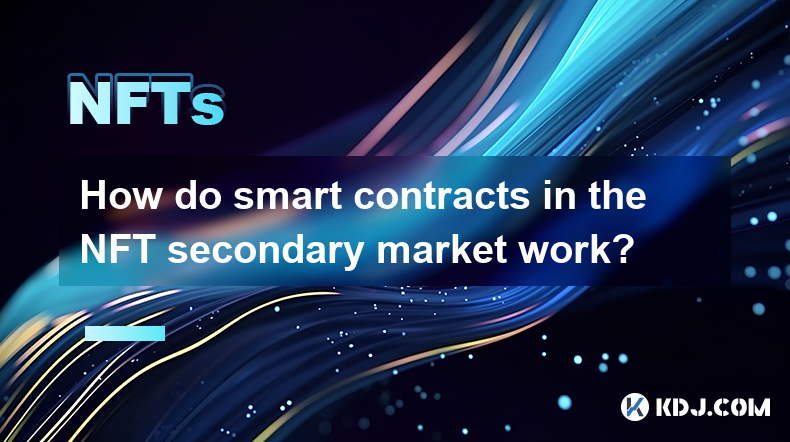
How do smart contracts in the NFT secondary market work?
Apr 03,2025 at 07:14am
Smart contracts play a pivotal role in the NFT secondary market, facilitating seamless transactions and enforcing predefined rules. These self-executing contracts with the terms of the agreement directly written into code are stored on the blockchain. In the context of NFTs, smart contracts automate the buying, selling, and transferring of digital asset...
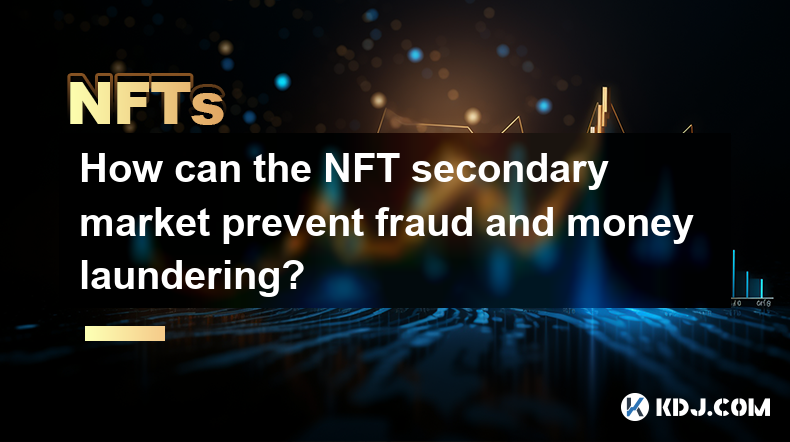
How can the NFT secondary market prevent fraud and money laundering?
Apr 03,2025 at 08:35am
The NFT secondary market has become a thriving hub for digital art and collectibles, but it also faces challenges in preventing fraud and money laundering. To tackle these issues, the market can implement various strategies and technologies to ensure a safer and more transparent trading environment. This article will explore how the NFT secondary market...
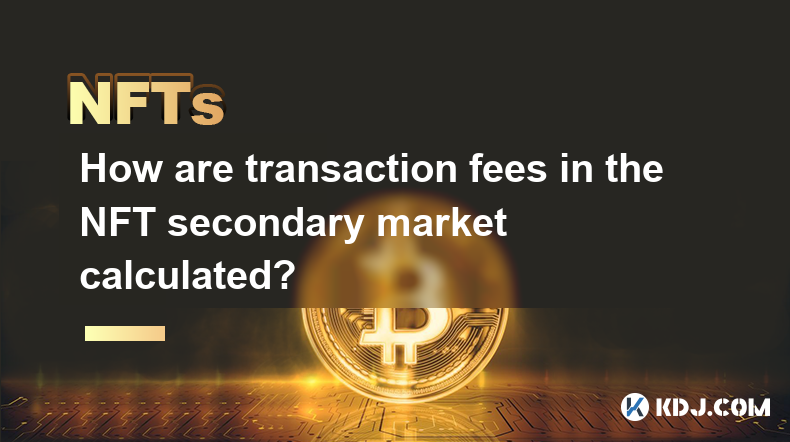
How are transaction fees in the NFT secondary market calculated?
Apr 04,2025 at 05:28am
The calculation of transaction fees in the NFT secondary market is a crucial aspect that both buyers and sellers need to understand. These fees can significantly impact the overall cost of transactions and the profits that sellers can make. In this article, we will delve into the various components that make up these fees, how they are calculated, and w...
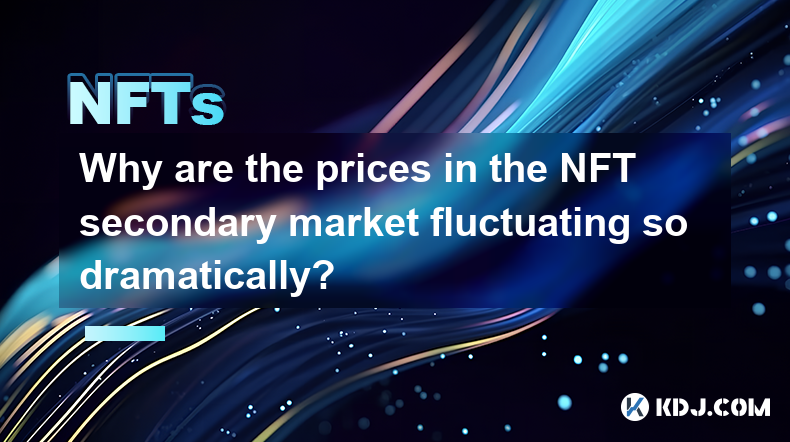
Why are the prices in the NFT secondary market fluctuating so dramatically?
Apr 03,2025 at 10:35pm
The NFT secondary market has been experiencing dramatic price fluctuations, leaving many in the cryptocurrency community puzzled and curious. To understand this phenomenon, it's essential to delve into the factors driving these price movements. From the impact of market sentiment and celebrity endorsements to the role of speculation and the unique natur...
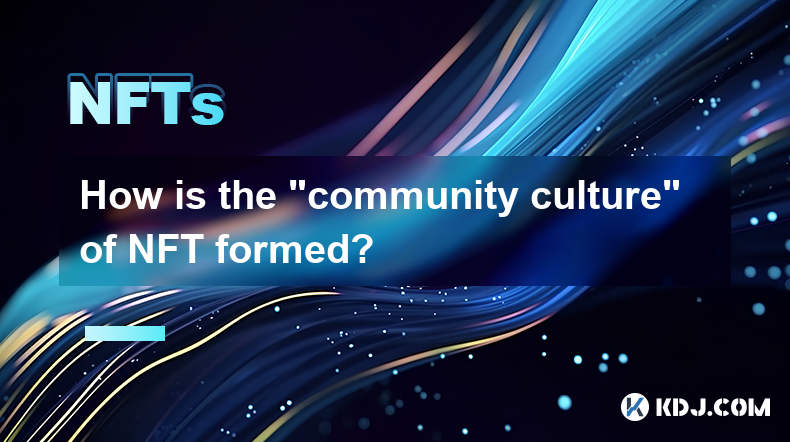
How is the “community culture” of NFT formed?
Apr 03,2025 at 11:07am
The formation of the 'community culture' within the NFT (Non-Fungible Token) space is a fascinating and multi-faceted process. It involves various elements such as shared interests, active engagement, and the creation of a sense of belonging among members. NFT communities often revolve around specific projects or artists, fostering a unique environment ...

Why can NFT be used to sell virtual tickets?
Apr 03,2025 at 01:35pm
NFTs, or Non-Fungible Tokens, have revolutionized the way we think about digital ownership and value, particularly in the realm of virtual tickets. The primary reason NFTs can be used to sell virtual tickets is their unique nature. Unlike cryptocurrencies such as Bitcoin or Ethereum, which are fungible and can be exchanged on a one-to-one basis, NFTs ar...

How do smart contracts in the NFT secondary market work?
Apr 03,2025 at 07:14am
Smart contracts play a pivotal role in the NFT secondary market, facilitating seamless transactions and enforcing predefined rules. These self-executing contracts with the terms of the agreement directly written into code are stored on the blockchain. In the context of NFTs, smart contracts automate the buying, selling, and transferring of digital asset...

How can the NFT secondary market prevent fraud and money laundering?
Apr 03,2025 at 08:35am
The NFT secondary market has become a thriving hub for digital art and collectibles, but it also faces challenges in preventing fraud and money laundering. To tackle these issues, the market can implement various strategies and technologies to ensure a safer and more transparent trading environment. This article will explore how the NFT secondary market...

How are transaction fees in the NFT secondary market calculated?
Apr 04,2025 at 05:28am
The calculation of transaction fees in the NFT secondary market is a crucial aspect that both buyers and sellers need to understand. These fees can significantly impact the overall cost of transactions and the profits that sellers can make. In this article, we will delve into the various components that make up these fees, how they are calculated, and w...

Why are the prices in the NFT secondary market fluctuating so dramatically?
Apr 03,2025 at 10:35pm
The NFT secondary market has been experiencing dramatic price fluctuations, leaving many in the cryptocurrency community puzzled and curious. To understand this phenomenon, it's essential to delve into the factors driving these price movements. From the impact of market sentiment and celebrity endorsements to the role of speculation and the unique natur...

How is the “community culture” of NFT formed?
Apr 03,2025 at 11:07am
The formation of the 'community culture' within the NFT (Non-Fungible Token) space is a fascinating and multi-faceted process. It involves various elements such as shared interests, active engagement, and the creation of a sense of belonging among members. NFT communities often revolve around specific projects or artists, fostering a unique environment ...

Why can NFT be used to sell virtual tickets?
Apr 03,2025 at 01:35pm
NFTs, or Non-Fungible Tokens, have revolutionized the way we think about digital ownership and value, particularly in the realm of virtual tickets. The primary reason NFTs can be used to sell virtual tickets is their unique nature. Unlike cryptocurrencies such as Bitcoin or Ethereum, which are fungible and can be exchanged on a one-to-one basis, NFTs ar...
See all articles


















































































